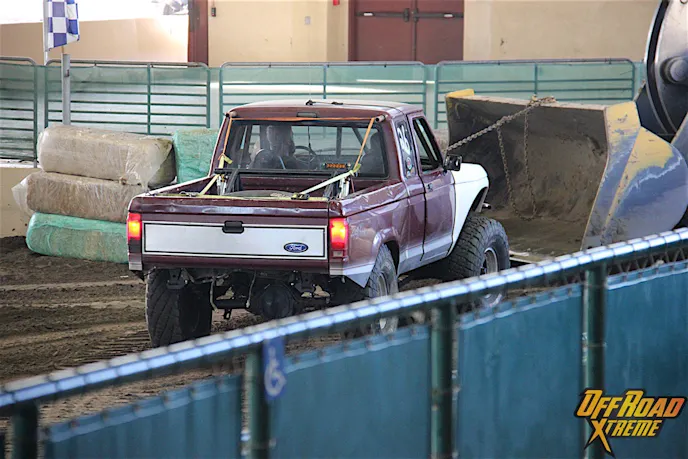What a world we live in, that for every itch, we have a way to scratch it. Craving some late-night burgers? There are plenty of restaurants open. Need to catch up on a developing or just-missed-it season of a TV show? There are a number of services that can make it happen. So what about those times when you just want to take your rig and blast it over some tabletops, washboards, and sharp turns? That’s where Tuff Trucks steps in.
Put on by WGAS Motorsports, the event makes its way across much of the West Coast, going up as far as Ridgefield, Washington and as far down as Del Mar, California. We recently made our way to the Del Mar event this past week, as it stopped by as part of the annual San Diego County Fair. There, we saw over a dozen trucks and SUVs battle it out time-trial-style, and we had to think: what all does it take to compete in Tuff Trucks?
The start should always be to figure out the rules. For that, we turned to the internet and found the entry flyer for upcoming events, including the Stanislaus County Fair one taking place on the 16th.
First, there are two different classes for Tuff Trucks: Street and Open. Street class permits the use of normal, everyday trucks like you see on the road. Four tires, four fenders, a motor, seatbelts, etc. Basically, it has to be able to pass as a streetable vehicle. Open class, as the name suggests, allows for more radical trucks to enter, where roll cages, roll bars, tube chassis, motor swaps, and other drastic changes to the vehicle are permissible (adding to the appeal is the $1,000 check that can be won for first place). Any vehicle that enters must be subjected to tech inspection prior to competing.

Entry fees for a Tuff Truck event are as follows: $10 for an advance entry (two weeks or more before event), $20 for regular entry (two weeks leading up to event), and $30 for last minute entry (day of event). Entrants receive one racer pass and one pit crew pass, and payment can be made by check or card.
Now that you have that out of the way, here’s what you can expect from the event when you get there. In the case of the Del Mar event, Tuff Trucks took place inside of an arena with wet dirt terrain and obstacles including minor jumps, whoops, and dragonbacks. For the size, it looked like plenty of track to go over, and the average time for a given vehicle was about 45 seconds.
If you’re going to run in Street class, you’ve already made your peace with the car’s future and know you’re probably going to break something. More power to you, and we wish you the best.
If you’re in the open class, make sure that cage is complete and nothing is dangling or loose. For you, Tuff Trucks can be looked at as a very cheap and fun “test ‘n tune” session, and the chance at the $1,000 purse is always a nice incentive.
For more information on these events and where they’ll be heading next, check out the schedule on the WGAS website. In the meantime, stay cool this summer and get ready for “desert season” to return soon.
You might also like
TMI Products Expands Into Late-Model Trucks, SUVs, And Jeeps With Premium Leather Upholstery
TMI Products launches a premium upholstery line for trucks, SUVs, and Jeeps, offering factory-fit quality with airbag-tested safety.




